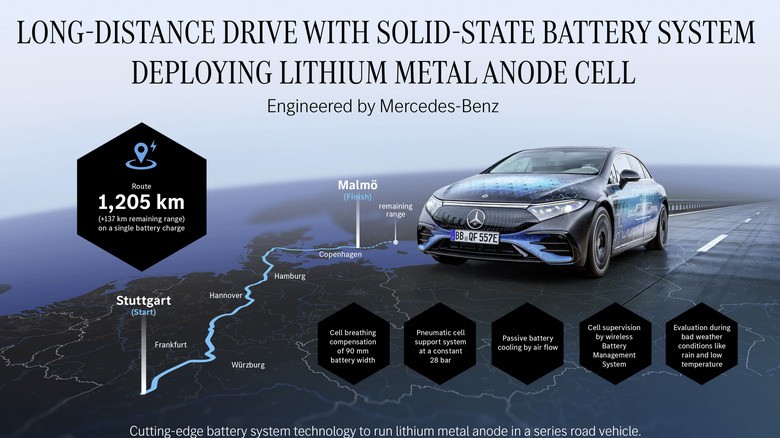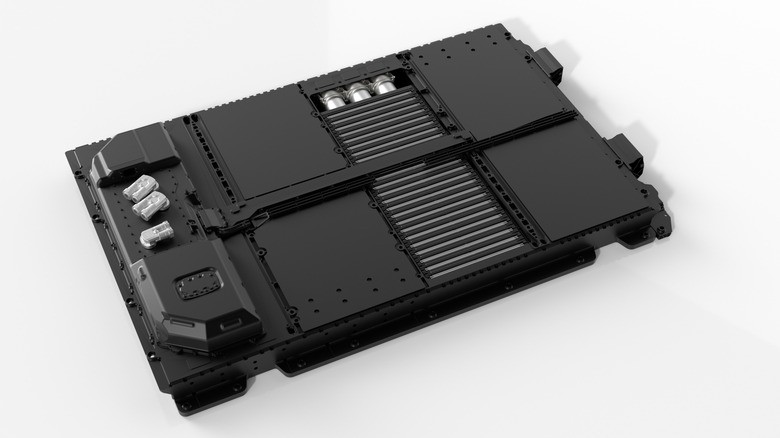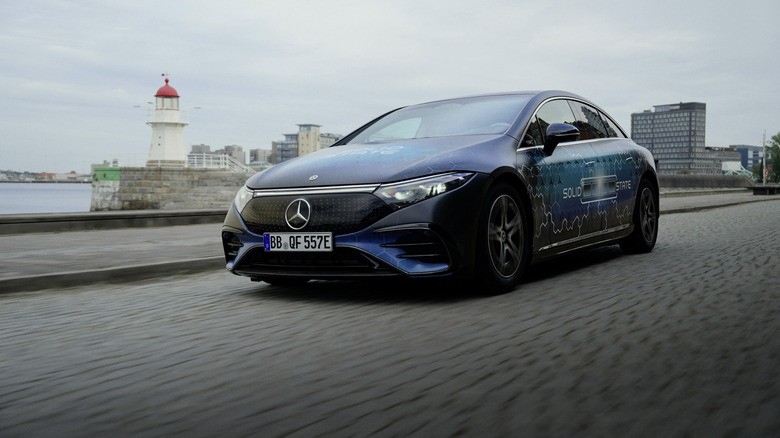Mercedes’s 749-Mile Solid-State Trial: A Modded EQS, a Europe-Spanning Road Trip, and the Battery Revolution (Is It Real?)
In a bold demonstration, Mercedes-Benz claims it has pushed a prototype solid-state battery to nearly 750 miles of range on a single journey from Stuttgart, Germany to Malmo, Sweden, via Denmark, with 85 miles to spare. The run used a modified Mercedes EQS and relied on battery cells from Factorial Energy. The system is built around Factorial's 'Factorial Electrolyte System Technology' (FEST), described as quasi-solid-state because it still uses some liquid elements. Factorial also lists an all-solid-state design called 'Solstice.' Mercedes and Factorial say the current system effectively constitutes a solid-state application. "The solid-state battery is a true gamechanger for electric mobility," Mercedes CTO Markus Schafer said. "Our goal is to bring innovations like this into series production by the end of the decade and offer our customers a new level of range and comfort."

How It Was Built: Factorial Energy, FEST, and a Dream Team
The FEST-based system was developed in close collaboration with Mercedes-AMG High Performance Powertrains (HPP), the Formula 1 technology center of the Mercedes-Benz Group in Brixworth, UK. The Stuttgart–Malmo road test is the latest in a road-testing program announced earlier this year. Factorial is also working with Stellantis; the automaker invested $75 million back in 2021. The FEST cells adapt to changes in cell volume during charging or discharge using pneumatic actuators, increasing usable energy content by about 25 percent.

The Road Ahead: Costs, Production, and What It Could Mean for the Battery Market
Industry insiders have long described solid-state as a ten-story house: the first nine floors are manageable, but the top floor—the final manufacturing, cost, and scalability hurdles—remains the hard part. If Mercedes can bring solid-state into serial production at a reasonable cost, it would disrupt the current battery supply chain and trigger a wave of competition. Even with progress, many questions remain about mass production, cost to consumers, and safety, but the potential is enormous: a road-tested range that could surpass 800 miles would be a revolution.


